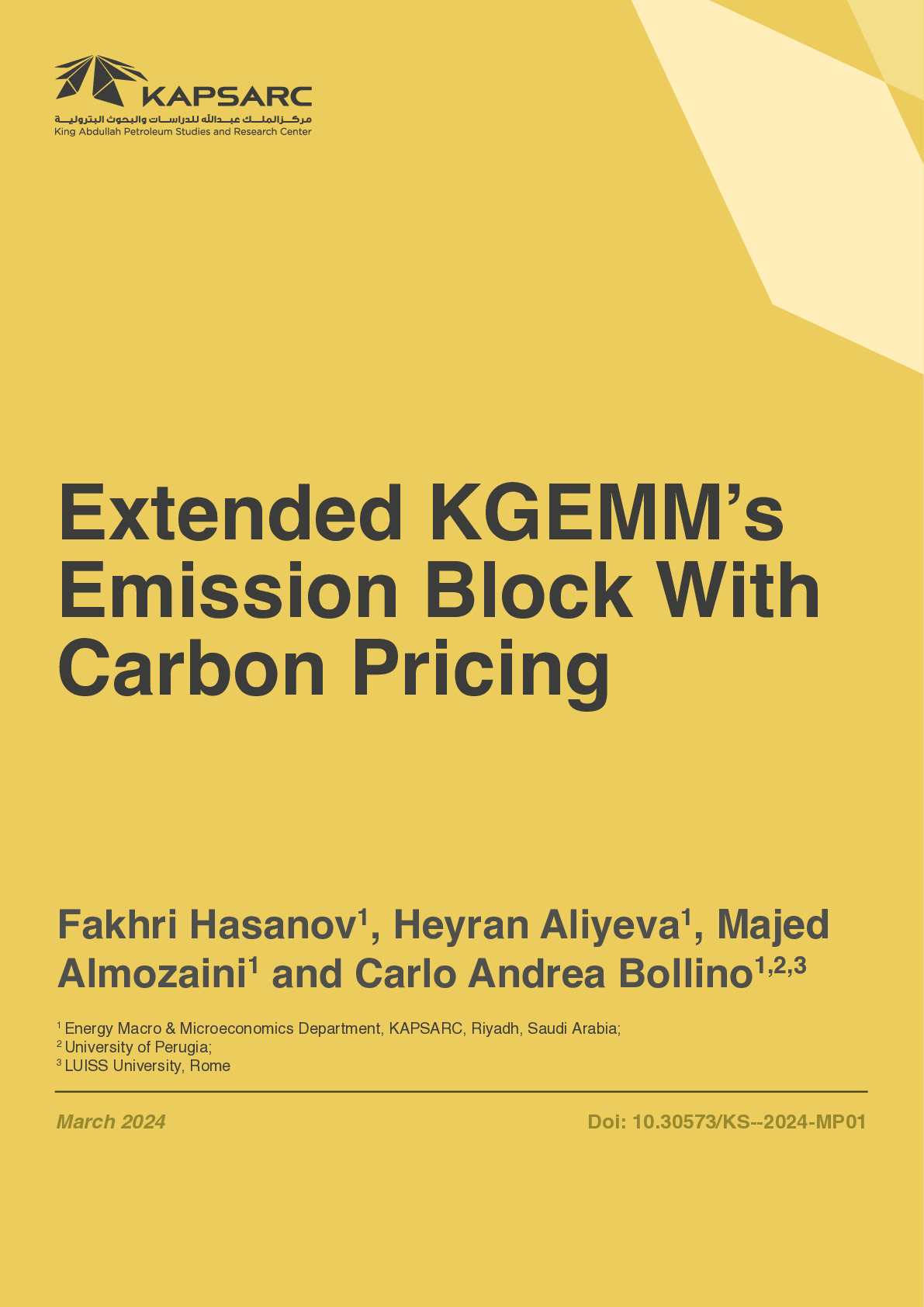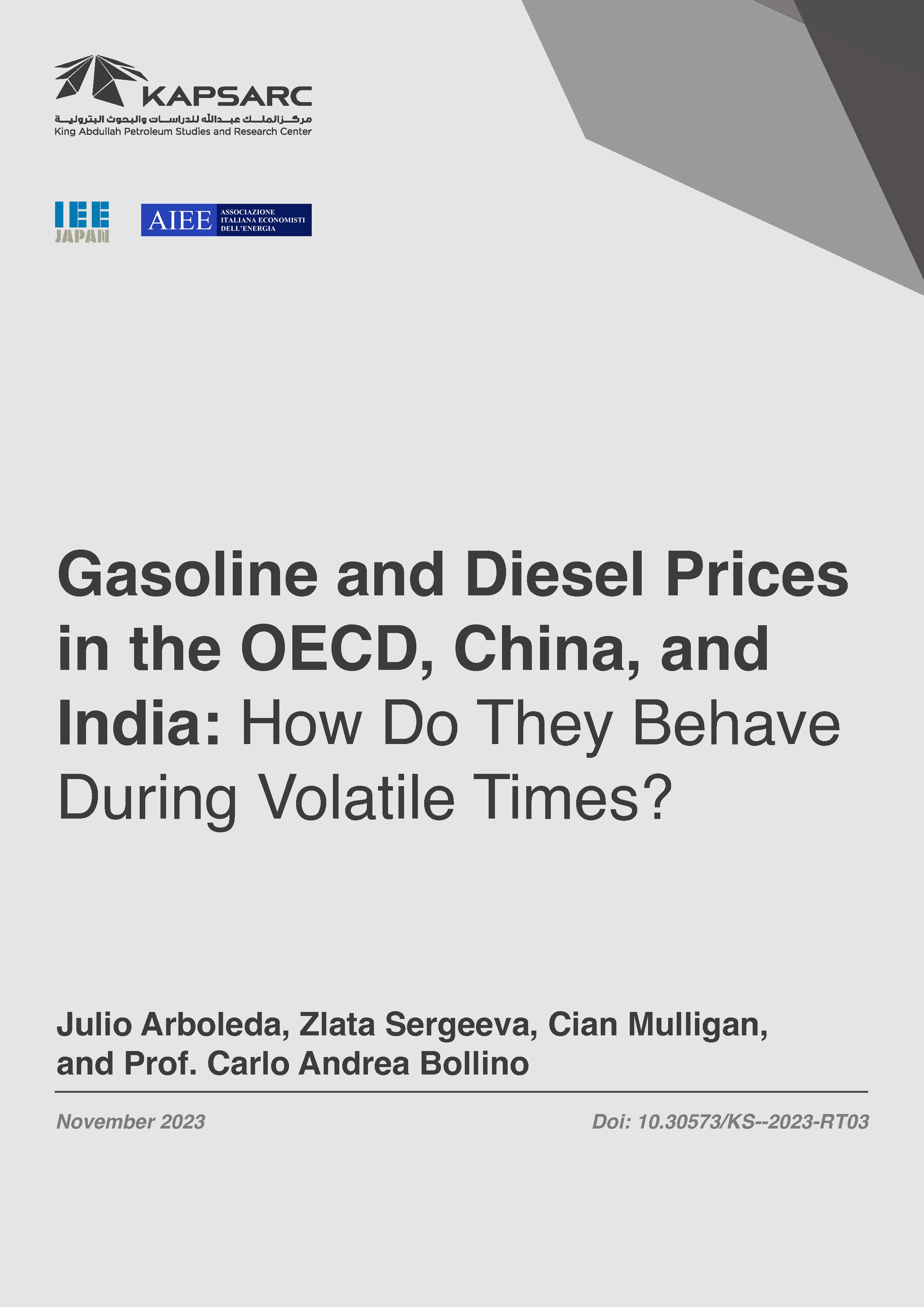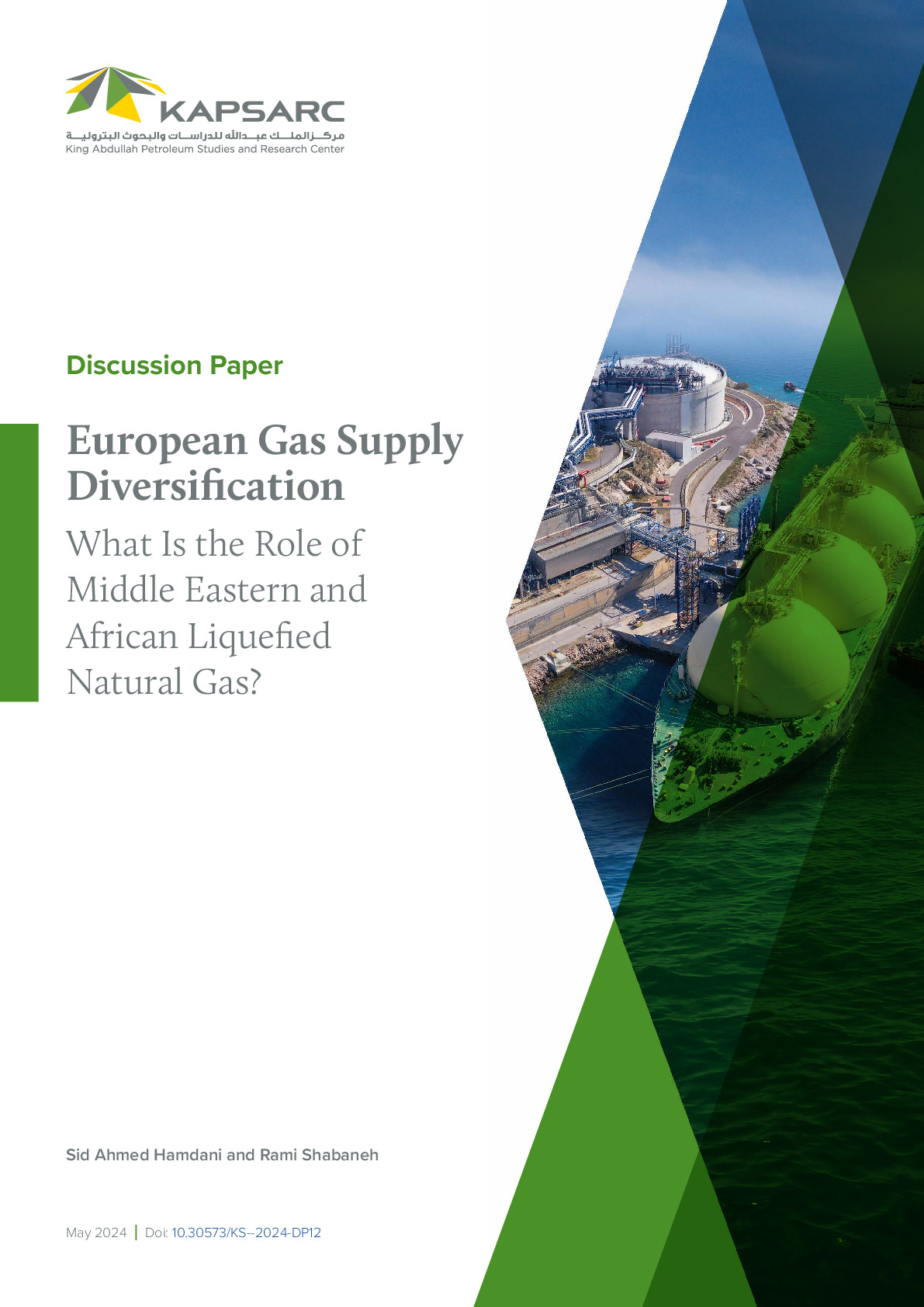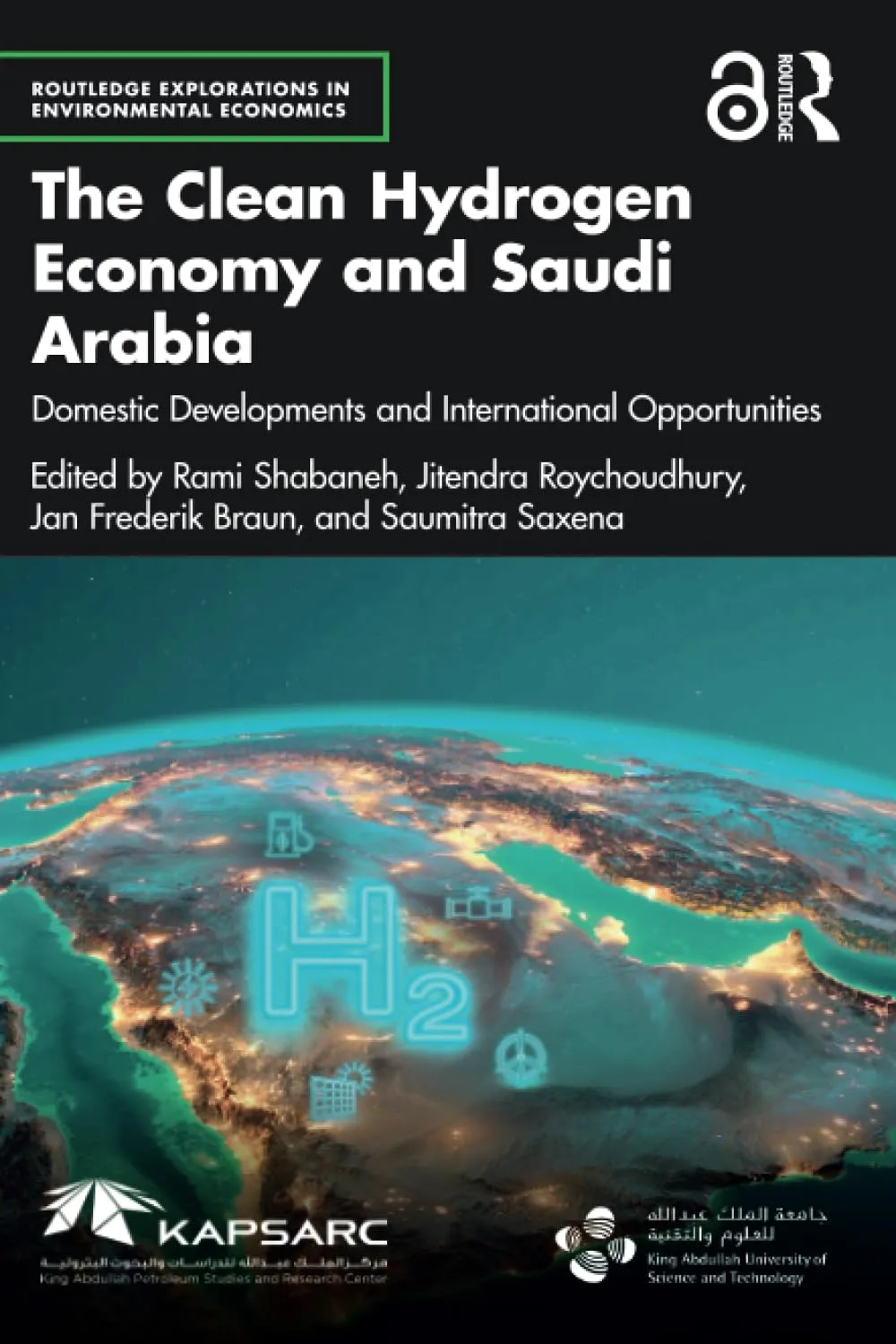Petrochemical products, particularly plastics, contribute to a significant share of expanding and increasingly diverse trade flows between the Gulf Cooperation Council (GCC) countries and China. The petrochemical sector could benefit from a preferential bilateral trade regime between China and the GCC, but has been a bone of contention in the GCC-China Free Trade Agreement (FTA) negotiation process. This study applies a dual-stage model of import demand functions to estimate the impact of trade liberalization scenarios, within an FTA framework, on China’s imports of major plastics from the GCC and the rest of the world. It assesses the implications of these scenarios for all parties.

Visiting Researcher
Philipp is a visiting researcher at KAPSARC, working on the economic and policy aspects of energy supply and trade. Philipp’s…
Philipp is a visiting researcher at KAPSARC, working on the economic and policy aspects of energy supply and trade. Philipp’s work at KAPSARC includes evaluating the effect of preferential trade agreements on energy flows, analysis of OPEC energy policy and deriving insights related to China’s energy policy and its impact on global markets through modeling energy supply sectors.
Expertise
- International economic relations
- Regional and country studies and policy analysis
Publications See all Philipp Galkin’s publications
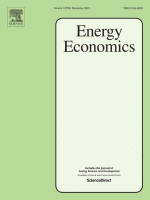
The Effects of a Shock to Critical Minerals Prices on the World Oil Price and Inflation
Petrochemical products, particularly plastics, contribute to a significant share of expanding and increasingly diverse trade…
1st November 2023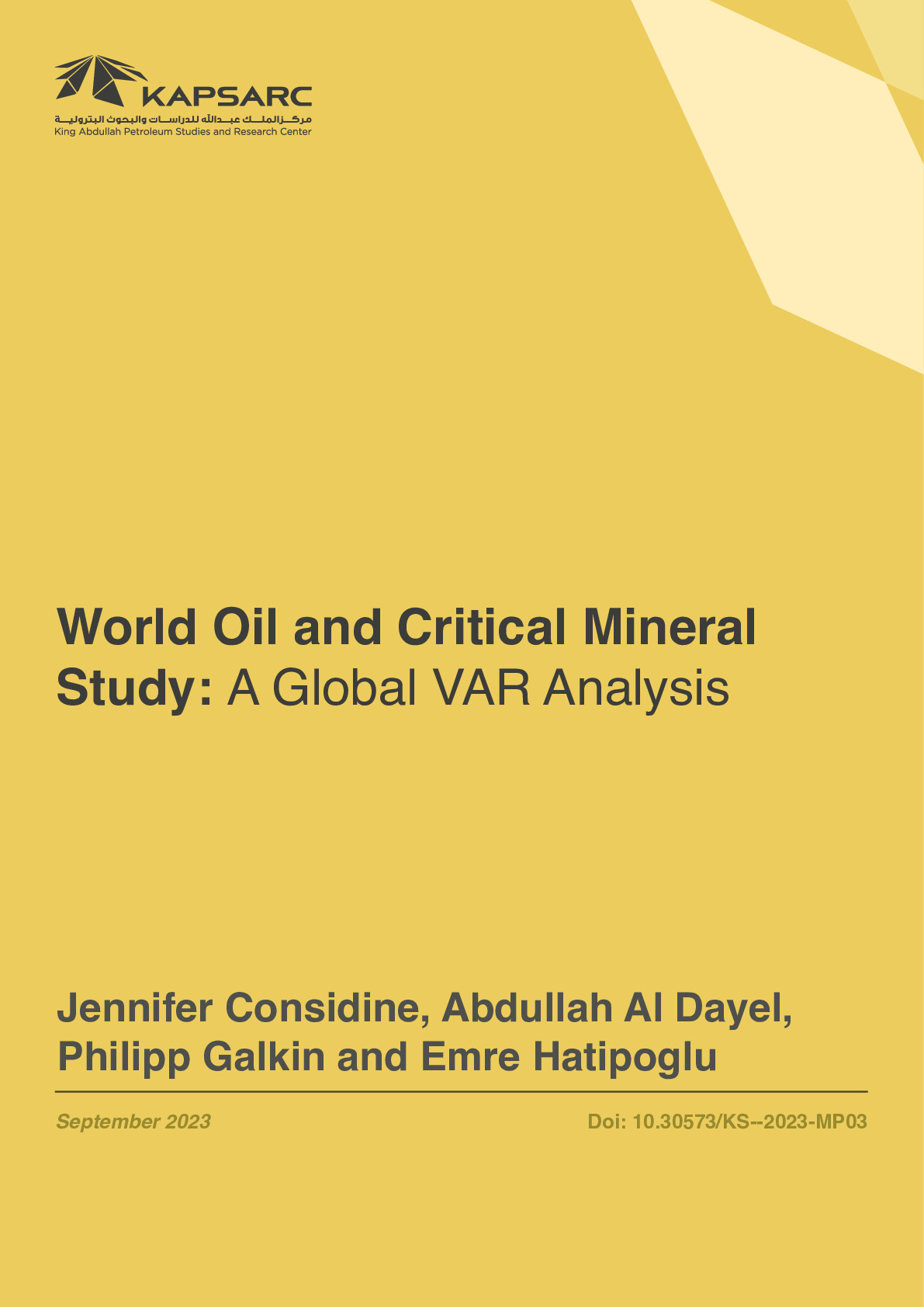
World Oil and Critical Mineral Study: A Global VAR Analysis
Petrochemical products, particularly plastics, contribute to a significant share of expanding and increasingly diverse trade…
26th September 2023

